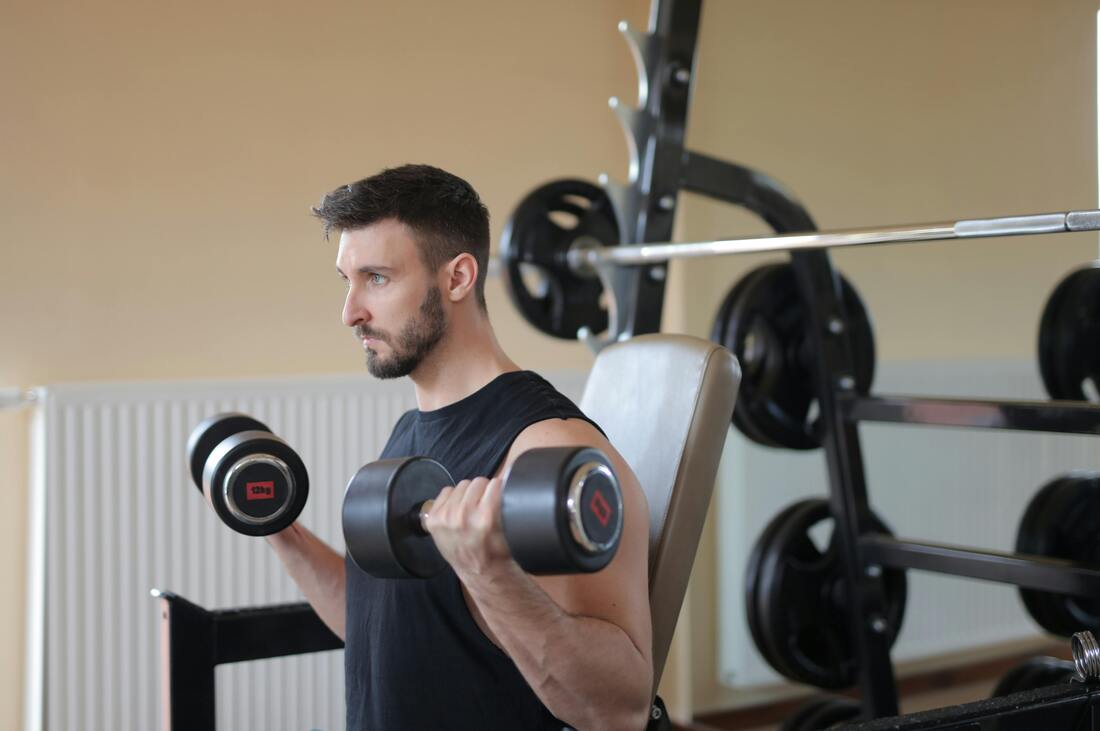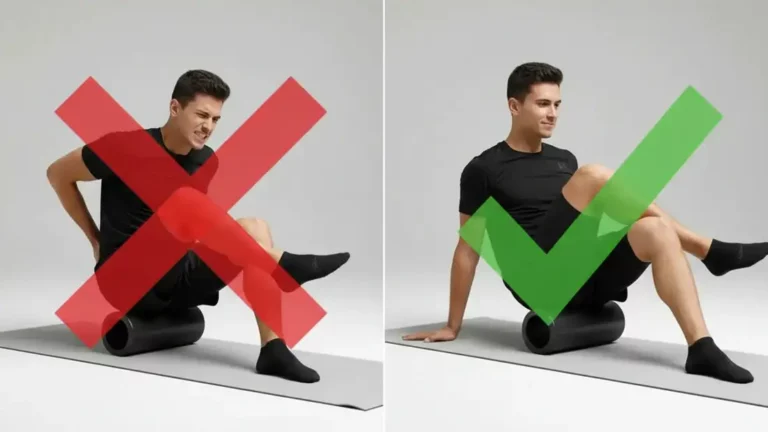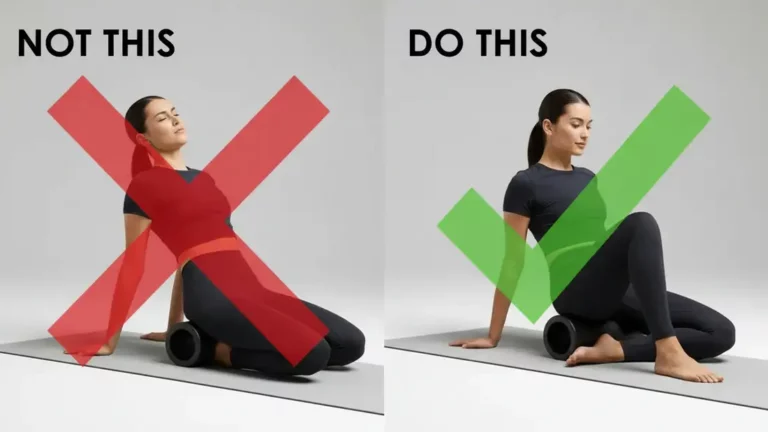So you’re ready to ditch the gym membership and create your own home gym, but a crucial question remains: dumbbells or barbells?
Both are fantastic tools for strength training, but one might be a better fit for your space, goals, and budget.

The Breakdown: Strength and Weaknesses
Barbells
The king of compound lifts (exercises that work multiple muscle groups at once).
Barbells allow you to lift heavier weights, ideal for building overall strength.
Think squats, deadlifts, and bench presses.
However, barbells require more space for storage and performing exercises.

Dumbbells
Shine in unilateral exercises (working each side of the body independently) which can improve muscle imbalances and coordination.
Additionally, dumbbells require more core stabilization throughout exercises, giving your core a hidden workout.
The downside?
Lifting weights with dumbbells might be lighter than barbells due to balance challenges.

Home Gym Suitability
Space is a major consideration.
Barbells need room for the bar itself and the weight plates to move freely during exercises.
Dumbbells, on the other hand, are more compact and require less space for storage and use.
Finding Your Fitness Fit
What are your workout goals?
- Powerlifting Goals: Barbells are your go-to for replicating powerlifting movements like squats, deadlifts, and bench press with heavy weights.
- Bodybuilding Goals: Dumbbells excel at isolation exercises that target specific muscle groups, like bicep curls, shoulder raises, and lateral raises.
Sample Home Workouts: Getting Started
Here’s a quick look at beginner-friendly workouts you can try at home with minimal equipment:
Dumbbell Workout:
- Warm-up with jumping jacks, high knees, and arm circles.

- Dumbbell Squats (3 sets of 10 reps)

- Dumbbell Rows (3 sets of 10 reps per arm)

- Overhead Press (3 sets of 10 reps)

- Dumbbell Lunges (3 sets of 10 reps per leg)

- Plank (3 sets of 30 seconds hold)

Barbell Workout (requires a squat rack or barbell stands):
- Warm-up with jumping jacks, high knees, and arm circles.

- Barbell Squats (3 sets of 5 reps) – start light and focus on proper form.

- Barbell Rows (3 sets of 8 reps)

- Bench Press (3 sets of 5 reps) – use a weight you can control.

- Romanian Deadlifts (3 sets of 10 reps) – focus on keeping your back straight.

- Rest for 30 seconds between sets and 1-2 minutes between exercises.
Remember: Safety first! It’s crucial to learn proper form and technique before lifting weights, especially at home.
Consider starting with bodyweight exercises or lighter weights to perfect your form before progressing.
Progression Tips: Keeping Your Workouts Fresh
The key to continual improvement is progressive overload. Here are some ways to make your workouts more challenging:
- Increase Weight: Once you can comfortably perform the recommended sets and reps, gradually increase the weight of your dumbbells or barbells.
- Add Sets/Reps: If increasing weight feels too challenging, try adding another set or a few more repetitions to your exercises.
- Challenge Yourself: Explore more difficult variations of exercises as you get stronger.
Home Gym Alternatives: No Equipment, No Problem!
Even with limited space, you can still get a fantastic workout at home. Here are some alternatives to consider:
- Resistance Bands: These versatile tools offer a variety of resistance levels and can mimic many barbell and dumbbell exercises.

- Bodyweight Exercises: Don’t underestimate the power of your own bodyweight! Exercises like squats, lunges, push-ups, planks, and rows can build serious strength and muscle.

- Get Creative: Fill water bottles with sand or use household items like backpacks filled with books as weights.
Expert Advice: A Trainer’s Perspective
“When starting a home gym, focus on functional movements that translate to everyday activities,” says Asohan of foliagefield.com.
“Both dumbbells and barbells can help you achieve this, but the key is to prioritize proper form and gradually increase the difficulty as you get stronger.”
Conclusion
The choice between dumbbells and barbells for your home gym isn’t a one-size-fits-all answer.
Consider your space limitations, fitness goals, and budget.
Remember, you can even combine both for a well-rounded workout routine.
The most important factor? Consistency! So grab your weights.
You might also like to read on The Ultimate Guide: Should You Choose Resistance Bands Or Dumbbells?



